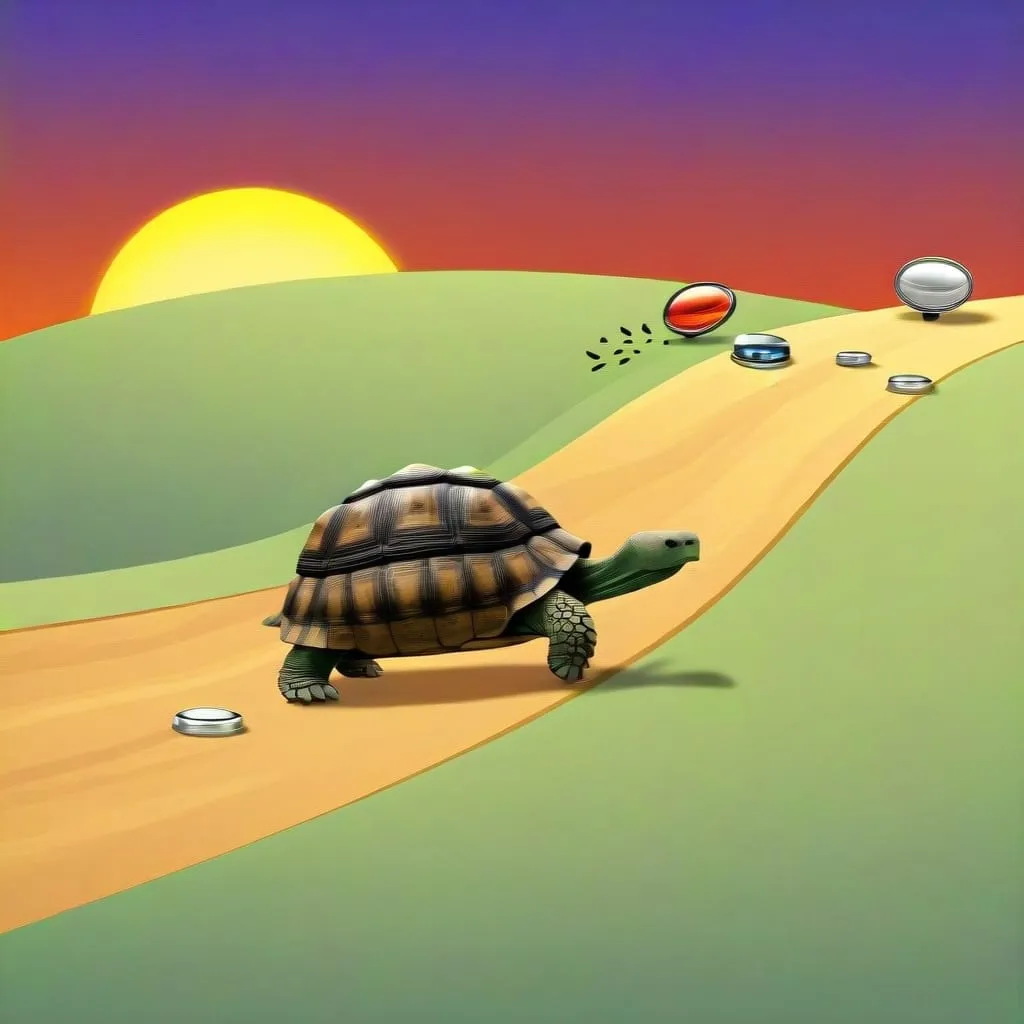Richard Feynman, a brilliant physicist, was once bored and burned out with his work. His life took a turn when he observed a student throwing a wobbling plate in the air. Intrigued, he decided to study the plate’s movement just for fun. This playful curiosity rekindled his passion for physics.
Feynman's story teaches us that play isn't just for kids; it can reignite our love for what we do. By approaching tasks with a sense of fun and curiosity, we can break free from burnout and rediscover joy in our work. Many other Nobel laureates, like James Watson and Alexander Fleming, also found that play was crucial to their groundbreaking discoveries.
So, if you're feeling stuck or uninspired, try adding a bit of playfulness to your routine. You might be surprised at how much it can transform your perspective and productivity.
Tiny Adventures in Everyday Life
Incorporating adventure into your daily routine can significantly boost your mood and excitement. A study from New York University found that people who explored new places and took different routes felt happier and more relaxed.
You don't need to climb mountains or travel the world to feel adventurous. Simple changes, like taking a new route to work, trying a different coffee shop, or visiting a nearby park, can make your day more interesting. When we break out of our usual routines and explore new experiences, we invite a sense of adventure and novelty into our lives.
Think of your day as a series of small adventures. By embracing this mindset, you can transform ordinary moments into exciting opportunities for discovery. Start small, stay curious, and see how these little adventures can bring more joy and excitement to your everyday life.
The Power of Curiosity
Curiosity makes life more interesting and helps us learn better. A study from the University of California found that people remember facts 30% better when they're curious about them. When you're curious, your brain gets a hit of dopamine, which feels good and helps you focus.
You can harness this power of curiosity by turning daily tasks into "side quests," like in video games. For example, if you have to work on a project, ask yourself questions or explore new tools that might make the task more interesting.
Engage with your curiosity by seeking out new information or trying new methods, even for routine activities. This not only makes tasks more enjoyable but also enhances your ability to remember and learn. Curiosity transforms mundane tasks into exciting challenges, making life more engaging and fun. So, follow your curiosity and see where it leads!
Finding Fun in the Mundane
Making mundane tasks enjoyable can significantly enhance your day. Inspired by "Mary Poppins," consider ways to add fun to even the most boring chores. For example, playing your favorite music while doing household tasks can make them more pleasant and time-efficient.
When studying for exams, maintaining motivation can be challenging. Adopting the "A Spoonful of Sugar" approach from "Mary Poppins" can help. Try playing an engaging soundtrack to make the study process more enjoyable.
This playful mindset can also be applied to work. Incorporating elements like music, humor, or creativity can transform tedious tasks into activities to look forward to. Ask yourself, "What would this look like if it were fun?" and experiment with different ways to bring joy into your routine. You might be surprised at how much this can boost productivity and mood.
Focusing on the Process, Not the Outcome
Enjoying the journey rather than fixating on the destination can make any task more fulfilling. Take a lesson from Olympic climber Alberto Ginés López, who found joy in the act of climbing rather than just winning medals. This mindset shift can apply to everyday tasks too.
For example, Matthew Dicks, a storyteller and novelist, turned his monotonous job at McDonald's into a fun challenge by upselling BBQ sauce to customers. Instead of focusing on the repetitive nature of his work, he found a way to enjoy the process.
To apply this in your life, look for small ways to make tasks enjoyable. Whether it’s adding a personal challenge or finding creative methods to accomplish your goals, focusing on the process can transform mundane activities into engaging experiences. By enjoying the steps you take, you might find more satisfaction and less stress in your daily routine.
Lowering the Stakes to Enhance Creativity
Stress can stifle creativity and playfulness. Studies show that people, like rats in experiments, are less likely to play or be creative when they're stressed. Reducing stress can open up more opportunities for fun and innovative thinking.
Mark Rober’s coding experiment demonstrated that how we perceive failure impacts our willingness to try. Participants who faced minor penalties for errors were less persistent and successful than those who didn't. This shows that high stakes can discourage experimentation and creativity.
To foster a playful and creative mindset, try reframing failures as learning opportunities rather than setbacks. View each mistake as a data point that guides you toward improvement. Lowering the stakes in this way reduces stress and allows you to approach tasks with a sense of curiosity and experimentation. When the fear of failure diminishes, you can explore new ideas and solutions more freely, enhancing both creativity and enjoyment.






